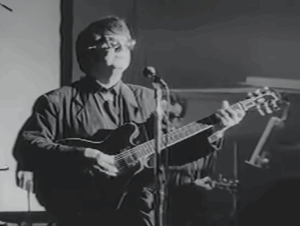The Led Zeppelin Song That Robert Plant Regretted

via PigMine 6 / YouTube
By the late 1970s, Led Zeppelin had already cemented their place as rock legends. Their journey, beginning in 1968, was marked by groundbreaking albums and unforgettable performances. With a lineup featuring Robert Plant’s soaring vocals, Jimmy Page’s guitar wizardry, John Paul Jones’ musical versatility, and John Bonham’s thunderous drumming, the band redefined the boundaries of rock.
Their earlier work—like “Whole Lotta Love” and “Stairway to Heaven”—showcased both raw energy and complex artistry. But as the decade neared its end, Led Zeppelin faced personal and creative challenges that would influence their later recordings. “In Through the Out Door,” released in 1979, was a reflection of this turbulence.
It was in this album that a particular song, “Carouselambra,” became a point of contention. While the band was exploring new directions, this track, layered in synthesizers and cryptic lyrics, became the centerpiece of both innovation and introspection. And for Robert Plant, it would later come to symbolize a missed opportunity.
The Making of “Carouselambra”
“Carouselambra” was a sprawling, ten-minute odyssey that departed from Led Zeppelin’s bluesy roots. With John Paul Jones taking the lead on synthesizers and crafting much of the song’s structure, the band ventured into progressive territory. The song’s shifting sections and unconventional arrangement made it one of the most ambitious pieces in their catalog.
Robert Plant took on the task of writing lyrics that reflected the inner turmoil of the band at the time. His words hinted at growing disconnects, changing priorities, and the struggle to hold onto creative unity. But in the final mix, those lyrics were buried beneath the instrumentation, particularly Jones’ dominant keyboard presence.
This imbalance frustrated Plant. In later interviews, he shared his regret that his lyrics—arguably some of his most personal—were lost in the production. The song had the potential to tell the story of a band in flux, but its message remained largely unheard by casual listeners.
View this post on Instagram
Plant’s Lingering Regret
In a 2003 interview with Mojo, Robert Plant opened up about his conflicted feelings. He expressed admiration for parts of the track, especially the “darker dirges” that Jimmy Page contributed. But what lingered most was his disappointment in how the lyrics were handled. “I rue it so much now,” he admitted, reflecting on how the track could have served as a window into the band’s final years.
Plant’s words were not just about technical mixing. They echoed a deeper frustration—the sense that the emotional and narrative core of “Carouselambra” was never fully realized. In hindsight, he saw the track as a missed opportunity to document the complex dynamics within the group during its final phase.
Still, he didn’t entirely dismiss the song. While the regret was evident, so was his respect for the musical ambition behind it. “Carouselambra” became a bittersweet chapter in Led Zeppelin’s story—one that Plant acknowledged with both pride and pain.
View this post on Instagram
A Legacy Beyond Regret
Despite his misgivings, Robert Plant continues to recognize the song as part of Led Zeppelin’s broader artistic journey. “Carouselambra” may not have achieved the universal acclaim of their earlier hits, but it stands as a testament to their willingness to take risks and evolve, even under strain.
The song also marks an important phase in the band’s evolution, capturing the shift from their hard rock dominance to more experimental landscapes. For longtime fans, it’s a hidden gem—dense, layered, and packed with meaning for those willing to dig beneath the surface.
In the end, Plant’s regret doesn’t diminish the song’s value. If anything, it enriches it. “Carouselambra” serves as both a musical artifact and a candid reflection of Led Zeppelin’s twilight years—a song remembered not just for what it achieved, but also for what it might have been.
View this post on Instagram













